The necessity of predators…
What I Believe: About Business Management
Why You Should be Sensitive to (but Not Care Too Much About) Your Employees’ Feelings
Here’s how I explain it: It’s important to be sensitive to the feelings of your employees. But it’s equally important not to care too much about them.
Your job as a CEO (or entrepreneur) is to grow the business sustainably. And that means giving priority to product quality, customer service, and selling. Everything else is secondary. Including the personal lives of your employees.
The growth of any business, any enterprise for that matter, depends greatly on the knowledge, work ethic, and commitment of its employees – its key executives and, especially, its growers.
In other words, to develop a great, growing, profitable business, you need nothing but good employees and at least a handful of superstars. But good employees are in demand. And superstars are almost always employed by someone else. A competitor that wants to keep them.
That means the only way you can build a great business is to find a way to attract these good and great people. And the only reliable way you can do that is by offering them exciting jobs and paying them as much as they are worth with the promise of much more.
I’ve been around the block on this issue a dozen times. I’ve seen all the gimmicks. You can’t cheap out by hiring mediocre people and making them good, or even by hiring good employees and making them great. In the most important ways, I’ve come to understand after 50 years of thinking about it, people don’t change.
Money is very important. But even more important is the job. Mediocre employees want safe jobs. Good employees want jobs they can do well. Great employees want challenging jobs with the authority to show how great they are.
One thing that won’t attract great employees, however, is fun and games. It’s fashionable today for companies to clutter their offices with stuffed animals and meditation dens and juice bars. Mediocre and even good employees love those sorts of things. But great employees have no time for them. They have work to do.
A distressing aspect of this woke business culture is the preponderance of CEOs claiming, in interviews, that their management philosophy is about making their employees happy. And their idea of making employees happy is to pay attention to them and to care for them as if they were children – to get into their personal lives and, most of all, to care about their personal feelings.
I try my best not to care about my employees personal feelings. I want them to be happy with their jobs. Especially the great employees. And I would prefer they have good personal lives. But I won’t insult them or waste their time by acting as an ersatz psychologist or life coach.
When I hear CEOs boasting about how caring they are, I take such statements as disingenuous. I take them to mean that they think of their employees as children, and that their philosophy of management is to lead by deceit and manipulation.
In my early years as an executive, I was all about catering to my employees’ feelings. I shudder to remember how many times I capitulated to an unreasonable demand or put off firing someone because I didn’t want to upset them.
I was cured of that by JSN, who taught me more about business than anyone else. Upon hearing my explanation of why I didn’t fire someone who had been doing a terrible job, he sat me down and asked me the following questions (more or less)…
JSN: Who benefits from that decision?
Me: What do you mean?
JSN: Do I benefit from it?
Me: No, I admitted.
JSN: Do our customers benefit from it?
Me: No.
JSN: Does he benefit from it?
Me: Well, yes. I guess. He gets to keep working here.
JSN: So, he gets to keep doing a substandard job. And you are going to have to keep correcting his mistakes and making him miserable. No, I don’t think he benefits from it. I think he’d be better off somewhere else.
Me: Maybe you are right. Nobody benefits.
JSN: Actually, there is someone that benefits. You! By keeping him on, you are putting your feelings of guilt and embarrassment ahead of everyone and everything else. But in the long run, it will hurt you. Because it will make me think less of you as a manager.
Thus, I learned that I should not care about the feelings of my employees. And that meant – or so I believed at the time – that I had to shut off my mind and heart from those feelings. I had to train myself to think about something else the moment an employee began talking to me about their problems.
I had ample opportunity to practice the art of not caring. And I eventually got to the point where my response to someone complaining or falling apart or even getting defensive was not empathy but irritation.
In retrospect, this was counterproductive in terms of advancing what should have been my managerial priority: motivating my employees to work harder and smarter. I got away with it because… well, because I was the boss. And because it was a small company, everyone knew me, knew that I was new at this, and (I think) gave me a pass for being a little rough around the edges.
But in my second incarnation in business, I was involved in growing a much larger business. And what had been working for me no longer did. I was offending people right and left – people I hardly knew and who hardly knew me.
This is one of the many problems with growing a business too big. All of the corporate crap you promised yourself you were never going to get involved in at $10 million or even $100 million becomes unavoidable at $500 million or $1 billion. Like it or not, civility matters.
I am still learning this lesson. I recently ran into a problem with one of the best people I work with. He is very smart, very skilled, and bound for glory. I made some comment – I don’t even remember what it was – that offended him. (He told me so later.) And because it offended him, he pushed back on the idea I was advancing. That wasted time and it diminished an opportunity. Had I any idea he would react that way, I would have happily phrased my comment differently.
Here’s the thing: I don’t think I should care about his feelings so much that I should compromise my critique. I believe his response was wrong. It was egocentric and immature. But I do think I should have been sensitive enough to his immaturity to realize I had to be careful about how I stated my case.
I don’t have to say that this problem of dealing with emotional immaturity is a real one today. Kids are different. A college graduate is no longer an eager beaver, happy to take on whatever challenge is thrown his way. He’s spent four years being told that his feelings matter. And that making someone feel bad is a kind of violence. This sort of brain damage takes a while to recover from.
So that’s my thought for today: If you want to build something big and ambitious, you must hire good and great people. And since you will be hiring and working with sensitive people, you have to learn to be sensitive to their feelings – immature or not – and consider them in your dealings with them. But don’t let those feelings dictate your decisions. Care about feelings enough to be aware of them. But put your true care into how your customers feel about their experience with your business.

The drupe of a Gingerbread Palm (Hyphaene thebaica)
Native to the Arabian Peninsula and northwestern Africa, the Gingerbread Palm (also known as Doum or Doom Palm) was considered sacred by ancient Egyptians. Seeds were often found in pharaohs’ tombs. Eight baskets of 3,000-year-old doum fruit was found in Tutankhamen’s tomb.
All parts of the tree are useful. The leaves and stalks are used to make baskets, mats, coarse textiles, brooms, and rope. The timber is used for posts and poles and furniture. The shoots of the germinated seeds are eaten as a vegetable. The pulp of the fruit is made into a cold drink. And the dried rind is used to make molasses, cakes, and sweetmeats.
I was not much of a reader as a child.
I preferred to spend my time outdoors, playing. In my teens, I kept very busy building things, playing sports, and starting clubs and businesses. But not reading.
I don’t believe I had read more than a half-dozen books by the time I entered college. Since I was determined at that point to be an A-student, I had to read. A lot. So, I began a lifelong journey of reading as much as I could bear.
That meant a weekly consumption of dozens of articles and essays, multiple textbook chapters, and at least one full book.
Had I been a fast reader, it would have been easy. But because I had undiagnosed (at the time) dyslexia and OCD, it was an effort. I had to teach myself how to read efficiently. And I did.
These days, I read at least 1,000 essays each year, 10 times as many briefs on subjects of interest, and a book a month, or 50 books a year.
I’ve never had a system for selecting books to read. Some come from reviews. Some are award winners (The Booker Prize, the National Book Critics Circle Award, and the National Book Awards – but not Pulitzer or Nobel). Some are follow-ups on favorite authors. Some are classics I failed to read when I was younger. A few come from friends and colleagues. And the rest by randomly picking out books from my libraries.
For 2022, I thought I’d try something different: preselect 38 books (50 minus the 12 book club selections = 38). And read those.
I spent a day last week reviewing about a dozen “Best Books of 2021” lists, including The New York Times, Literary Hub, Good Reads, The New Yorker, and Esquire magazine.
From that group of more than 100, I found 30 that seemed promising, which I’ve listed below. (I left the descriptions pretty much as I found them.)
Book Recommendations for 2022
From Literary Hub’s “Best 48”

The Dawn of Everything
By David Graeber and David Wengrow
“Whether or not you’re a longtime fan of the late anarchist anthropologist David Graeber’s engagingly erudite examinations of social phenomena like debt or bullshit jobs (conveniently titled Debt and Bullshit Jobs), you will absolutely love The Dawn of Everything. Co-written with archeologist David Wengrow, DoE is a peripatetic survey of early humanity’s wide and varied attempts to organize itself, calling into question academic orthodoxies that so often treat human history as a straight narrative line that leads directly to late-stage, neoliberal capitalism. As if we didn’t make all this shit up and can’t make up some new, better shit.
“From the seasonally migratory communities of the Fertile Crescent to the egalitarian foragers of 10th-century California to the proto-cities of the ancient Ukrainian steppe, DoE is a probing look back at the ways in which people – just like us! – have tried to live together (spoiler alert: heavily policed, top-down hierarchies are not inevitable systems for human coexistence). DoE is a work of history, but also offers us a way forward: we are the ones who have imagined this world into being, and maybe we can imagine our way out.”

The Life of the Mind
By Christine Smallwood
“One of the purest pleasures I can experience while reading novels is also one of the rarest: when I read some detail – a character’s passing thought or observation, a way of relating one thing to another – that is deeply comprehensible, even familiar, despite the fact that I have never heard anyone say it out loud (or on the page) before. More plainly: I love it when characters in novels think the same terrible things that I think. This happens a lot in Smallwood’s precise debut The Life of the Mind, which is harrowing in some parts and hilarious in others, which is both deliciously cerebral and relentlessly physical, and which feels like a new kind of campus novel – one that’s actually honest.”
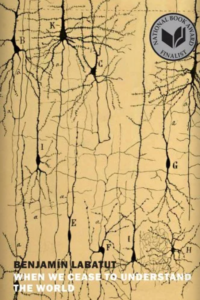
When We Cease to Understand the World
By Benjamin Labatut
“It is safe to say this might be the ‘word of mouth’ breakout success of the year (not often does a translated, genre-defying, contemporary NYRB title break into the New York Times 10 Best of the Year). Translated from the Spanish (Labatut is Chilean) by Adrian Nathan West, reading the first few paragraphs of When We Cease to Understand the Worldis like encountering a new intoxicant, with all its attendant thrills and shivers – and the uncertainty about where, exactly, things might lead.
“In what is essentially a fictionalized account of the real lives of a miscellany of 20th-century scientific giants (some famous, some less so), Labatut wades through the murky waters of human genius, finding there the darker implications of discovery, for society and scientist alike. Reading the inner lives of the likes of Fritz Haber, Werner Heisenberg, and Erwin Schrödinger – rendered by Labatut with the same kind of metaphorical heuristic so often employed to reveal truths about theoretical physics – one is left almost breathless by the grim consequences of all our endless wonder. There’s a reason this hybrid novel-biography has left its mark on nearly everyone who’s taken a taste.”
[ALSO A TOP-10 NYT BOOK]
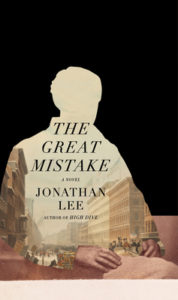
The Great Mistake
By Jonathan Lee
“In the opening pages of Lee’s latest novel, 83-year-old Andrew Haswell Green is murdered outside his home. It is 1903, in New York City. Lee then proceeds to explain to us – in lucid, luminous prose – exactly who Green was and why he met such an end. Which doesn’t really cover the pleasures of this novel, which are many: the lithe, surprising sentences, both dignified and playful; the finely wrought character portrait; the well-paced mystery; and the constant sense of discovery, as Lee keeps showing us vibrant new pockets of a world gone – and more broadly, unearths a true forgotten history, because if you don’t know (I didn’t), Green was a real person, a lawyer who is responsible for the creation of much of New York City as we know it, and yet has mostly faded from public memory. I, at least, will not forget him now.”

There’s No Such Thing as an Easy Job
By Kikuko Tsumura
“It seems like ‘burnout lit’ could be its own category these days, but trust me when I say that this is not that. Well, not exactly. Our unnamed narrator is a disaffected millennial, which for obvious reasons is a staple of the genre. But her anxiety and deadpan humor, when combined with the lens of modern Japanese culture and the increasing strangeness (and even supernaturalness) of the gigs – from spying on an author (riveting stuff, as you can imagine) to punching tickets at a haunted public park – make for a quietly engrossing story. Apparently this is the first time Tsumura’s been translated into English – an egregious oversight, and one that I hope is remedied soon.”
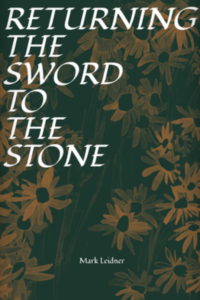
Returning the Sword to the Stone
By Mark Leidner
“Reading Mark Leidner will make you believe that humor is the most powerful poetic tool. Of course, almost no poets – almost no people – are as funny as Leidner, so you should probably just appreciate the poems in front of you instead of trying to make any grand proclamations about what other poems should be. This is how I felt when reading Returning the Sword to the Stone – grateful for a book so of itself, in which the humor doesn’t deflect truth, it refracts it. The poem ‘Youth is a Fugitive’ begins ‘that thinks it’s a hostage.’ I could go on, endlessly: this is the kind of book that urges relentless quotation, so I’ll restrain myself, except to say that I’m sorry to everyone to whom I texted every line of ‘I’m Running for President’ (the poetry equivalent of the best I Think You Should Leave sketches). I recommend Returning the Sword to the Stone to everyone, regardless of the size of their poetry library.”
From From GoodReads Choice Awards
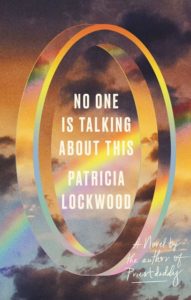
No One Is Talking About This
By Patricia Lockwood
“It’s another attention-grabbing mind-blower which toggles between irony and sincerity, sweetness and blight… Lockwood deftly captures a life lived predominantly online… This portrait of a disturbing world where the center will not hold is a tour de force that recalls Joan Didion’s portrait of the dissolute 1960s drug culture of Haight-Ashbury in her seminal essay, ‘Slouching Towards Bethlehem’… Lockwood is a master of sweeping, eminently quotable proclamations that fearlessly aim to encapsulate whole movements and eras… It’s a testament to her skills as a rare writer who can navigate both sleaze and cheese, jokey tweets and surprising earnestness, that we not only buy her character’s emotional epiphany but are moved by it… Of course, people will be talking about this meaty book, and about the questions Lockwood raises about what a human being is, what a brain is, and most important, what really matters.”
[ALSO A TOP-10 NYT BOOK]
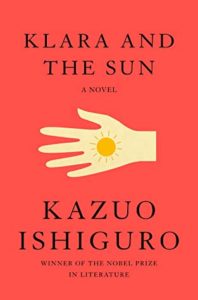
Klara and the Sun
By Kazuo Ishiguro
“Kara and the Sun confirms one’s suspicion that the contemporary novel’s truest inheritor of Nabokovian estrangement – not to mention its best and deepest Martian – is Ishiguro… Never Let Me Go wrung a profound parable out of such questions: the embodied suggestion of that novel is that a free, long, human life is, in the end, just an unfree, short, cloned life. Klara and the Sun continues this meditation, powerfully and affectingly. Ishiguro uses his inhuman, all too human narrators to gaze upon the theological heft of our lives, and to call its bluff… Ishiguro keeps his eye on the human connection.
“Only Ishiguro, I think, would insist on grounding this speculative narrative so deeply in the ordinary… Whether our postcards are read by anyone has become the searching doubt of Ishiguro’s recent novels, in which this master, so utterly unlike his peers, goes about creating his ordinary, strange, godless allegories.”
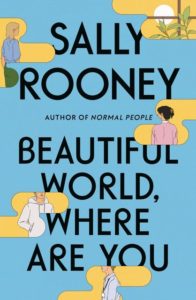
Best Fiction: Beautiful World, Where Are You
By Sally Rooney
“Irish author Sally Rooney wins this year’s Best Fiction award for her celebrated novel on the complexities of romance, sex, and friendship on our swiftly tilting planet. A kind of deep-focus love quadrangle story, the book clearly hit a nerve for readers. This is the second GCA nomination for Rooney – she came in second for her 2018 novel, Normal People.”
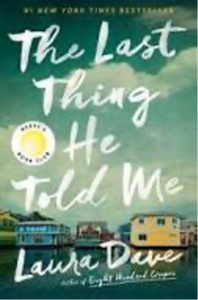
Best Mystery/Thriller: The Last Thing He Told Me
By Laura Dave
“Before Owen Michaels disappears, he smuggles a note to his beloved wife of one year: Protect her. Despite her confusion and fear, Hannah Hall knows exactly to whom the note refers – Owen’s sixteen-year-old daughter, Bailey. Bailey, who lost her mother tragically as a child. Bailey, who wants absolutely nothing to do with her new stepmother.
“As Hannah’s increasingly desperate calls to Owen go unanswered, as the FBI arrests Owen’s boss, as a US marshal and federal agents arrive at her Sausalito home unannounced, Hannah quickly realizes her husband isn’t who he said he was. And that Bailey just may hold the key to figuring out Owen’s true identity – and why he really disappeared.”
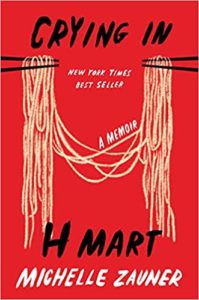
Best Memoir & Autobiography: Crying in H Mart
By Michelle Zauner
“An unflinching, powerful memoir about growing up Korean American, losing her mother, and forging her own identity.
“In this exquisite story of family, food, grief, and endurance, Michelle Zauner proves herself far more than a dazzling singer, songwriter, and guitarist… Vivacious and plainspoken, lyrical and honest, Zauner’s voice is as radiantly alive on the page as it is onstage. Rich with intimate anecdotes that will resonate widely, and complete with family photos, Crying in H Mart is a book to cherish, share, and reread.”
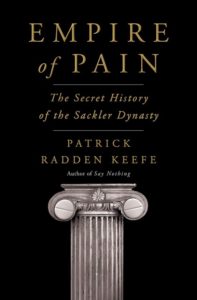
Best History/Biography: Empire of Pain
By Patrick Radden Keefe
“This year’s winner of the Goodreads Choice Award for History/Biography, Empire of Pain is an exhaustively researched profile of the Sackler family, the aristocratic American clan that made its fortune making and marketing the painkiller OxyContin. Patrick Radden Keefe is a master of the kind of narrative reporting style that brings novelistic intensity to rigorous nonfiction reporting. Keefe was also nominated for a GCA for his 2018 book, Say Nothing.”
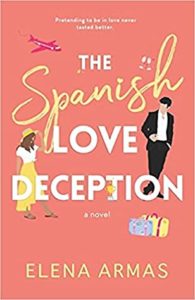
Best Debut: The Spanish Love Deception
By Elena Armas
“A wedding. A trip to Spain. The most infuriating man. And three days of pretending. Or in other words, a plan that will never work.
“Spanish author Elena Armas brings several new twists to a classic rom-com setup with this debut novel, which has already won a devoted following in the Goodreads community. Catalina Martin is taking her new American boyfriend to her sister’s wedding in a small Spanish town. Aaron Blackford is tall, handsome, and supremely aggravating. Alas, he’s not actually Catalina’s boyfriend. This is Armas’ first GCA win, naturally.”
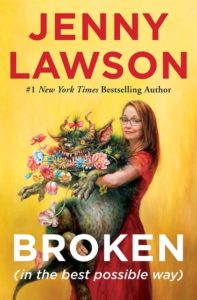
Best Humor: Broken
By Jenny Lawson
“As Jenny Lawson’s hundreds of thousands of fans know, she suffers from depression. In Broken, Jenny brings readers along on her mental and physical health journey, offering heartbreaking and hilarious anecdotes along the way… A treat for Jenny Lawson’s already existing fans, and destined to convert new ones, Broken is a beacon of hope and a wellspring of laughter when we all need it most.”
From the NYT’s Best 10
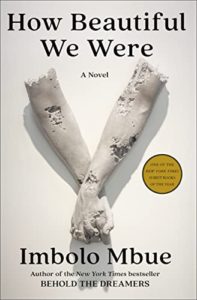
How Beautiful We Were
By Imbolo Mbue
“Following her 2016 debut, Behold the Dreamers, Mbue’s sweeping and quietly devastating second novel begins in 1980 in the fictional African village of Kosawa, where representatives from an American oil company have come to meet with the locals, whose children are dying because of the environmental havoc (fallow fields, poisoned water) wreaked by its drilling and pipelines. This decades-spanning fable of power and corruption turns out to be something much less clear-cut than the familiar David-and-Goliath tale of a sociopathic corporation and the lives it steamrolls. Through the eyes of Kosawa’s citizens young and old, Mbue constructs a nuanced exploration of self-interest, of what it means to want in the age of capitalism and colonialism – these machines of malicious, insatiable wanting.”
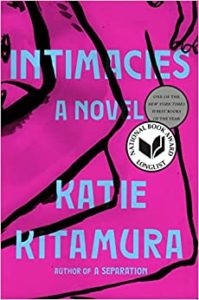
Intimacies
By Katie Kitamura
“In Kitamura’s fourth novel, an unnamed court translator in The Hague is tasked with intimately vanishing into the voices and stories of war criminals whom she alone can communicate with; falling meanwhile into a tumultuous entanglement with a man whose marriage may or may not be over for good. Kitamura’s sleek and spare prose elegantly breaks grammatical convention, mirroring the book’s concern with the bleeding lines between intimacies – especially between the sincere and the coercive. Like her previous novel, A Separation, Intimacies scrutinizes the knowability of those around us, not as an end in itself but as a lens on grand social issues from gentrification to colonialism to feminism. The path a life cuts through the world, this book seems to say, has its greatest significance in the effect it has on others.”
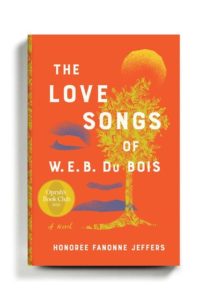
The Love Songs of W.E.B. Du Bois
By Honorée Fanonne Jeffers
“The Love Songs of W.E.B. Du Bois, the first novel by Jeffers, a celebrated poet, is many things at once: a moving coming-of-age saga, an examination of race and an excavation of American history. It cuts back and forth between the tale of Ailey Pearl Garfield, a Black girl growing up at the end of the 20th century, and the ‘songs’ of her ancestors, Native Americans and enslaved African Americans who lived through the formation of the United States. As their stories converge, Love Songs creates an unforgettable portrait of Black life that reveals how the past still reverberates today.”
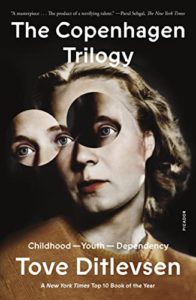
The Copenhagen Trilogy
By Tove Ditlevsen
“Ditlevsen’s gorgeous memoirs, first published in Denmark in the 1960s and ’70s and collected here in a single volume, detail her hardscrabble upbringing, career path and merciless addictions: a powerful account of the struggle to reconcile art and life. She joined the working ranks at 14, became a renowned poet by her early 20s, and found herself, after two failed marriages, wedded to a psychopathic doctor and hopelessly dependent on opioids by her 30s. Yet for all the dramatic twists of her life, these books together project a stunning clarity, humor and candidness, casting light not just on the world’s harsh realities but on the inexplicable impulses of our secret selves.”
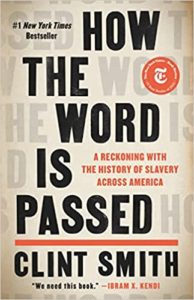
How the Word Is Passed
By Clint Smith
“For this timely and thought-provoking book, Smith, a poet and journalist, toured sites key to the history of slavery and its present-day legacy, including Thomas Jefferson’s Monticello; Angola, the Louisiana State Penitentiary; and a Confederate cemetery. Interspersing interviews with the tourists, guides, activists and local historians he meets along the way with close readings of scholarship and poignant personal reflection, Smith holds up a mirror to America’s fraught relationship with its past, capturing a potent mixture of good intentions, earnest corrective, willful ignorance and blatant distortion.”
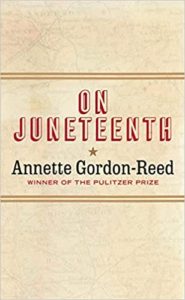
On Juneteenth
By Annette Gordon-Reed
“This book weaves together history and memoir into a short volume that is insightful, touching and courageous. Exploring the racial and social complexities of Texas, her home state, Gordon-Reed asks readers to step back from the current heated debates and take a more nuanced look at history and the surprises it can offer. Such a perspective comes easy to her because she was a part of history – the first Black child to integrate her East Texas school. On several occasions, she found herself shunned by whites and Blacks alike, learning at an early age that breaking the color line can be threatening to both races.”
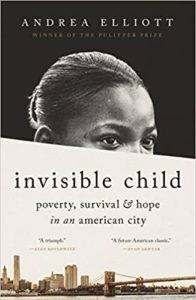
Invisible Child
By Andrea Elliott
“To expand on her acclaimed 2013 series for The Times about Dasani Coates, a homeless New York schoolgirl, and her family, Elliott spent years following her subjects in their daily lives, through shelters, schools, courtrooms and welfare offices. The book she has produced – intimately reported, elegantly written and suffused with the fierce love and savvy observations of Dasani and her mother – is a searing account of one family’s struggle with poverty, homelessness and addiction in a city and country that have failed to address these issues with efficacy or compassion.”
From Esquire’s Top 50
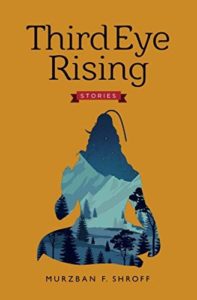
Third Eye Rising
By Murzban F. Shroff
“In these warm and wise parables of an ever-changing India, Shroff explores the tension between spiritual faith and modern life. In the harrowing title story, a dowry-less bride is forced to perform an agonizing ritual by her sadistic in-laws. Another unforgettable story invites us into the mind of a sacred cow, who narrates a confrontation between patrons at her temple. Each richly imagined story rings out with soulful truths about the collision between time-honored traditions and twenty-first century values, making for a stirring collection about where the past and present collide.”
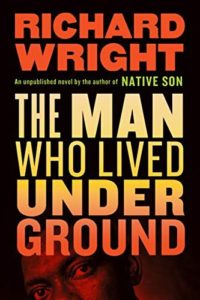
The Man Who Lived Underground
By Richard Wright
“What if you could look at life from outside of life? What would you see? That’s the provocative question posed in this previously unpublished novel from one of the twentieth century’s greatest writers, wherein a Black man named Fred Daniels is apprehended by the police, brutally tortured, and forced to sign a confession for a violent crime he did not commit. To escape his captors, Daniels flees into the city’s underground sewers, where he transforms into someone else entirely. Beneath an unfair world, Daniels tunnels into the basements of local establishments, leading him to startling truths about morality, injustice, and what matters most when the world’s systems are stripped away. Though the novel was written in the 1940s, its visceral vision of crime and punishment continues to hold modern resonance.”
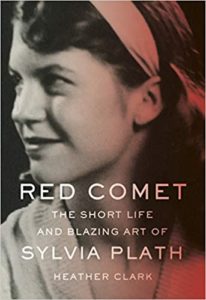
Red Comet
By Heather Clark
“It’s daring to undertake a new biography of Plath, whose life, and death by suicide at 30 in 1963, have been thoroughly picked over by scholars. Yet this meticulously researched and, at more than 1,000 pages, unexpectedly riveting portrait is a monumental achievement. Determined to rescue the poet from posthumous caricature as a doomed madwoman and ‘reposition her as one of the most important American writers of the 20th century,’ Clark, a professor of poetry in England, delivers a transporting account of a rare literary talent and the familial and intellectual milieu that both thwarted and encouraged her, enlivened throughout by quotations from Plath’s letters, diaries, poetry and prose.”
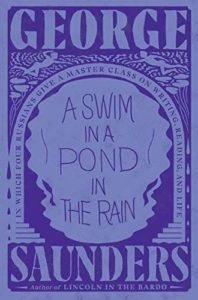
A Swim in a Pond in the Rain
By George Saunders
“‘The part of the mind that reads a story is also the part that reads the world,’ George Saunders writes in A Swim in a Pond in the Rain. It’s perhaps the truest distillation of Saunders’ visionary life and work, encapsulating the characteristic generosity and humanity of his artistic outlook. Saunders has spent over two decades teaching creative writing in Syracuse University’s MFA program, where his most beloved class explores the 19th-century Russian short story in translation. In A Swim in a Pond in the Rain, Saunders has distilled decades of coursework into a lively and profound master class, exploring the mechanics of fiction through seven memorable stories by Chekhov, Tolstoy, Turgenev, and Gogol. In these warm, sublimely specific essays, Saunders’ astounding powers of analysis come into full view, as does his gift for linking art with life. By becoming better readers, Saunders argues, we can become better citizens of the world.”
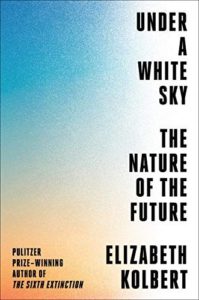
Under a White Sky
By Elizabeth Kolbert
“The Pulitzer Prize-winning author of The Sixth Extinction returns with another sobering look at our Anthropocene Epoch, this time centered not on the countless calamities ahead, but on the trailblazing efforts of scientists to turn back the doomsday clock. Kolbert describes the subjects of Under a White Sky as ‘people trying to solve problems created by people trying to solve problems’; she turns her lens to human interventions in nature, like the storied redirection of the Chicago River, and to the pressing need for further intervention to correct our folly. Traveling everywhere from the Great Lakes to the Great Barrier Reef, she chronicles her encounters with scientists, who are pioneering cutting-edge technologies to turn carbon emissions to stone and shoot diamonds in the stratosphere. Heralded by everyone from Barack Obama to Al Gore, Kolbert’s urgent, deeply researched text asks if our ingenuity can outrun our hubris.”
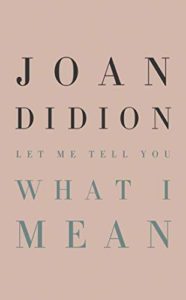
Let Me Tell You What I Mean
By Joan Didion
“From a titan of American letters comes a compendium of twelve early pieces, never before anthologized together, which find everyone from Martha Stewart to Ernest Hemingway in Didion’s crosshairs. Each essay showcases Didion at her very best, spotlighting her incisive reporting, her steely narrative gaze, and her commanding gifts as a prose stylist. Anthologized together in this compact volume, these peerless essays remind us just why Didion looms so large in the pantheon of American literature.”
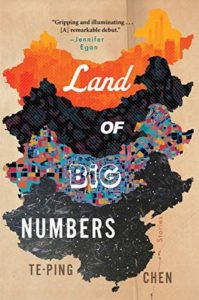
Land of Big Numbers
By Te-Ping Chen
“Chen’s remarkable debut collection of stories unfolds across the modern Chinese diaspora, pinballing between acutely observed realism and tragicomic magical realism. In one story, a man becomes addicted to chasing the highs and lows of the volatile Chinese stock market; in another, a group of commuters remain trapped in a subway station for months on end, awaiting permission to leave. Each haunting, exquisitely crafted story poses powerful questions about freedom, disillusion, and cultural thought, firmly establishing Chen as an emerging visionary to watch.”
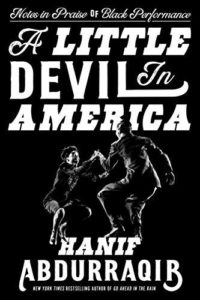
A Little Devil in America
By Hanif Abdurraqib
“The celebrated author of Go Ahead in the Rain returns with a far-reaching collection of twenty essays, each one a remarkable synthesis of criticism, autobiography, and cultural study about Black performance in America. Abdurraqib meditates on performances past and present, spotlighting everything from Soul Train to Whitney Houston, Josephine Baker to the Wu-Tang Clan. He illuminates what’s personal and political about Black performance, weaving a jubilant love letter to the resilient entertainers who’ve graced stages both big and small.”
In addition to those I intend to read the following seven:
Third Book’s a Charm
Among contemporary, nonfiction writers, two of my very favorites are Yuval Noah Harrari and Steven Pinker. I audio-read their books whenever I’m in my car. Because their ideas are so good and plentiful, I am happy to read the same books over and over again. But when a new one comes up, I’ll read that, too. For example:
Yuval Noah Harrari
* I read Sapiens: A Brief History of Humankind
* I’m reading 21 Lessons for the 21st Century
* I’m will read Homo Deus: A Brief History of Tomorrow
Steven Pinker
* I read Rationality
* I’m reading Enlightenment Now
* I will read The Better Angels of Our Nature
Classics That I Missed
Because of all those early years I spent not reading, I reached adulthood nearly illiterate in terms of the “classic” authors and books. I try to make up for that by reading five or six of the biggies each year. This year’s selections include:
* To the Lighthouse by Virginia Woolf
* Ulysses by James Joyce
* The Sound and the Fury by William Faulkner
* Invisible Man by Ralph Ellison
* The Magic Mountain by Thomas Mann
Bits and Pieces
The End of the World As We Know It
On December 17, I gave you my two cents on one of 2021’s hottest topics – the Metaverse. I said it’s real. It’s hugely important. And it’s already in motion.
Battles will be fought. Fortunes will be made. The world as we know it will be transformed. And a surprising amount of this will happen in the next 10 years.
Since it is something that is changing our lives, I am going to bring you bits and pieces of news on the Metaverse when I come across them. Here are a few:
* TikTok, the 2016 Chinese app, became the world’s most visited social media platform in 2021, according to Cloudfire. Shockingly, it surpassed even Alphabet’s Google. Click here.
* TikTok was already huge in China when it caught fire in the US in 2020, thanks to mindlessly entertaining videos, such as Idaho resident Nathan Apodaca skateboarding and drinking Ocean Spray cranberry juice while listening to Fleetwood Mac. Click here.
Seems Like Tilted Justice
On a brief rabbit hole dive last week, I happened upon two stories about justice that seemed equally out of step with my expectations.
In one case, a truck driver was given a 110-year jail sentence for a deadly accident.
In another case, a bodybuilder on a steroid rage got only 14 years for brutally beating and stabbing his girlfriend.
No, It’s Not Covid…
Fentanyl-related drug overdoses became the top killer in adults aged 18 to 45, overtaking suicides, vehicle accidents, and gun violence, according to an analysis of CDC data by the nonprofit group Families Against Fentanyl.
Fentanyl is a synthetic opioid that can be 50 to 100 times more potent than morphine. It is highly addictive, and increasingly deadly. The reason it’s so deadly is that it’s used in all sorts of illegal drugs (most commonly pain killers like Oxycodone), and users are often unaware that their drug of choice has been laced with it.
According to the DEA, most fentanyl is manufactured in Mexico using chemicals supplied from China and trafficked across the southern border by Mexican drug cartels.
You can learn more about fentanyl use by going to Families Against Fentanyl.
Did Fauci Torture Beagles?
You may have heard that the agency headed by Dr. Fauci (the National Institute of Allergy and Infectious Diseases) is in the business of torturing dogs. Or you may have heard that this story was fake news. And have you ever heard of meta-myths?
Click here to read a brilliant report on the heights and depths of bias in news reporting today.
Pedophiles Deserve Respect Too!
The latest from the super-Woke is a campaign to wake up America to the fact that pedophiles are not – as some think – monsters. No. They are very ordinary people with the same hopes, dreams, and desires as the rest of us. They just happen to be attracted to children.
I’m not kidding. Click here.
The NFT Market Blew Up in 2021
In 2020, NFTs were the new kid on the wealth-seeking block. Skeptical investors bet $100 million on them. In 2021 – spurred by the $69 million purchase of an NFT “created” by some crackpot named Beeple – that number skyrocketed to $22 billion.
That brought in the hedge-fund art crazies that bid heavily at auction houses that started offering more NFT sales. Soon thereafter, even respected museums were selling NFTs based on some of their best-known and most valuable pieces.
Also in on the craze: Hollywood celebrities (e.g., Jimmy Fallon, Keanu Reeves), sports figures, and even Melania Trump.
According to DappRadar, $4 billion worth of NFTs were sold in the first half of the year. In the second half, a remarkable $18 billion.
Female Athletes Begin to Speak Out Against Competing With Transgender Athletes
Most female athletes being pushed out of competition by biologically born males (who are much stronger and faster) say nothing, even as records in women’s sports are being advanced far beyond what any woman will ever be able to reach.
But recently, a young athletes have started to spoken out:
And a US swimming official has just quit over this issue:
On a Lighter Note in the Male vs. Female Sports Universe…
Two Olympic-level female gymnasts watching men performing gymnastic routines typically done by women:
Carl Sagan Was Right
Carl Sagan talking to Johnny Carson in 1995 about what the world would look like in 2021:
Master Ken Appears Again!
Here’s Renato Tavares, one of my Brazilian Jiu Jitu professors, posing with Master Ken, my favorite martial arts comedian:

The Holiday Suicide Myth
It’s a myth that suicides spike around the holidays. So says my friend and colleague Dr. David Eifrig.
The truth, he says, is that November and December see the fewest suicides.
What does increase during the holidays?
Depression, he says. Depression rates rise around the winter holidays for a simple reason – stress. And since stress is a major contributor to mental and physical health problems, there’s an increase in all death rates in January and February.
Urban Violence Update
On December 20, , I reported on the increase in violent crime in just about every large American city. Mayors of those cities, who once advocated defunding the police, are talking tough. Still, the violence continues. Here are a few recent stories that are especially embarrassing for said mayors:
* Congresswoman carjacked in broad daylight in Philadelphia. Click here.
* Illinois state senator carjacked in suburban Chicago. Click here.
* Mayor Lightfoot pleads for federal help after having refused it from Trump. Click here.
Speaking of Violence…
By a wide margin, most violent crimes are committed by males between the ages of 16 and 40. But in researching the above urban-violence stories, I came across these rather bizarre acts of violence by and against women:
* Woman who shot at car thought she was recorded urinating in parking lot. Click here.
* Female officer brutally attacked by suspect high on PCP. Click here.
* Pregnant librarian killed in alleged road rage shooting. Click here.
Worth Quoting: Writers on the Craft of Writing
* “The difference between good and great is often an extra round of revision. The person who looks things over a second time will appear smarter or more talented, but actually is just polishing things a bit more. Take the time to get it right. Revise it one extra time.” – James Clear
* “I thought of myself as like the jazz musician: someone who practices and practices and practices in order to be able to invent and to make his art look effortless and graceful. I was always conscious of the constructed aspect of the writing process, and that art appears natural and elegant only as a result of constant practice and awareness of its formal structures.” – Toni Morrison
Good and Bad Conversations
These days, good, productive conversations between people with differing views have become practically extinct.
This is what a bad conversation sounds like – Trevor Noah being interviewed by a Woke journalist:
This is what a good conversation sounds like – Russell Brand and Jordan Peterson:
3 Words to Consider
* Orotund – a word I’ve long misunderstood: Yes, it does mean “round and full,” but not in the sense of the human body. It comes from the Latin ore rotundo (“with rounded mouth”), and refers to sound. Example: “My own voice, orotund sweeping and final.” (Walt Whitman)
* Adventitious – a word I keep forgetting: It means occurring by chance or in an unusual place or manner. You use it to talk about things that just kind of happen. Example: “The adventitious beauty of poetry may be felt in the greater delight with a verse given in a happy quotation than in the poem.” (Ralph Waldo Emerson)
* Absquatulate – a word I absolutely must work into a future conversation: According to vocabulary.com, absquatulate “is a deeply silly word that means to make off with something or someone. Why say a thief ran away with your money when it’s much more fun to say he absquatulated with it? It came out of an odd fad in America in the 1830s for making playful words that sounded vaguely Latin. Bloviate and discombobulate are two other pseudo-Latin coinages from that era.”
Readers Write: Recent Letters to Moi
Comments on the holiday party advice article:
“I almost choked laughing at the tips for holiday Christmas parties.” – MF
“I am guilty of at least three of the bad behaviors you warn against, including taking the after party to a karaoke bar!” – FL
Comments on the Old Man Humor issue:
“I’m not an old man, but I thought some of those old man cartoons were hysterically funny!” – FC
“Sounds like your Myrtle Beach group is a lot of fun. Thanks for the laughs.” – GP
“Yes, you and your friends are in need of humor repair intervention.” – AS
JS sent me this…
You have to like a simple explanation of a simple problem that most educated people don’t understand.
“Be at war with your vices, at peace with your neighbors, and let every new year find you a better man.” – Benjamin Franklin
It’s customary for know-it-alls to issue predictions this time of year. I’ve done my part over the past 21 years of blog writing.
I took a gander at some of my predictions last night. What I discovered is something I wish I’d known at the outset. If you want to have the best possible record as a prophet, emulate the greatest and most famous prognosticator of all time: the legendary Nostradamus.
Nostradamus was a 16th century French doctor that practiced medicine during the Bubonic Plague. He was also an astrologer. But he’s best known for the predictions he made in his widely quoted Les Prophéties in 1555. And a cursory glance at Les Prophéties (which I did this morning) suggests that he followed four rules in foretelling the future:
- Make the prediction with certitude.
- The bigger and more shocking the better.
- Keep the language vague.
- And never, ever predict when it will happen.
Sure enough, when I look at my long-term, undated predictions, my record is perfect. None have come true yet. But none have not come true either.
During the early months of the COVID pandemic, I made several predictions about how the response to it would play out. For example, I said:
* The government, big tech, and the prestige media would continue to promote laws and regulations that restricted personal freedom in favor of social justice and public safety.
* In response to rising crime and higher taxes, there would be an exodus of businesses and wealthy people from New York, New Jersey, California, and Oregon to lower crime/ tax states such as Nevada, Texas, and Florida.
* The value of personal privacy would continue to erode as people became more and more comfortable signing waivers to apps – knowing little to nothing about what they were agreeing to.
* Political differences between Democrats and Republicans would become sharper and more acrimonious as civil courtesies among politicians continued to disappear.
I’d argue that I got those right. But I also got one wrong…
Eleven months prior to the presidential election, I speculated that the result would depend on whether the US voting public would be more frightened by the escalation of COVID or of violent crime. My prediction: By November, violent crime would be America’s number-one concern and, therefore, Trump would win a second term. But the mainstream media did an amazing job of scaring the shit out of otherwise rational people and Biden got the win.
So, what’s ahead of us this year?

Predictions for 2022
- The US economy will continue on its post-lockdown recovery, but the pace of growth will slow to nearly a crawl.
- Higher prices for many of the products affected by the supply chain slowdown will abate, but energy costs will stay high and inflation generally will continue at about 4%.
- Wage gains will be strong in the first quarter of the year, but will be dragging by the end of the year. Meanwhile, the value of those gains will diminish at 4+%.
- Middle- and working-class Americans will become increasingly unhappy with the economy and with the Biden administration. Approval ratings for Biden and Harris will drop even lower than they are now, the lowest level for any presidential administration in modern times.
- Government spending will continue, even after the Republicans regain control of the House and Senate. By the end of 2022, US debt will have topped $30 trillion.
- The rash of smash-and-grab theft in San Francisco, Chicago, and other easy-on-crime cities will decline as politicians in such cities reverse their views on police funding and bail reform. But homicides and other violent crimes in African-American neighborhoods will continue unabated.
- Throughout the rest of America, and particularly in suburban and agrarian areas, illegal drugs will continue to be a major problem, with drugs as the #1 killer of White males between the ages of 18 and 40.
- Because of the relatively low virulence of the Omicron variant, Americans will continue to lose their fear of COVID. This will worry the Democrats, who secretly attributed their success in the last elections to that fear. So, as the 2022 elections draw near, the Biden administration, supported by the mainstream media, will make an effort to spike that fear, but unsuccessfully.
- At the same, recognizing that the fear card isn’t working, liberals will crank up their newfound anger about urban violence, reversing their support of bail reform and calling for more police funding. Most of them will also disavow Black Lives Matter and Critical Race Theory.
Bonus: 5 Grim Predictions From Nostradamus
For a grimmer perspective, we return to Nostradamus.
Like all good prognosticators, Nostradamus’s predictions are intentionally vague and open to myriad interpretations. For 2021, according to some of his fans, he predicted a zombie apocalypse. I think that one came true.
For 2022, he predicted inflation, saying that the price of food will rise so high “That man is stirred/ His fellow man to eat in despair.”
He also said that “a new sage with a lone brain” will emerge, “by his disciples invited to be immortal.” The New York Postsuggests that he must have been referring to Time magazine’s Person of the Year, Elon Musk.
Then there is his prediction of environmental disaster – 40 years of drought followed by 40 years of constant rain. “The dry earth will grow more parched/ And there will be great floods when [the rainbow] is seen.”
And most remarkably, according, again, to some fans, Nostradamus predicted the rise of cryptocurrencies: “The copies of gold and silver inflated/ Which after the theft were thrown into the lake/ At the discovery that all is exhausted and dissipated by the debt/ All scripts and bonds will be wiped out.”
9 Feelings You Will Experience in 2022
I can see your future. For you, 2022 will be a year when you will come to see life as a disappearing stream of moments, each of which could be an opportunity. Furthermore, you will recognize each of these moments as…
- Annoying or
- Disappointing or
- Hurtful or
- Embarrassing or
- Shameful or
- Depressing or
- Challenging or
- New…
But most of them will be ordinary and, thus, invisible to you.
What to Do About Those Feelings
- Annoying moments: Ignore them.
- Disappointing moments: Accept them.
- Hurtful moments: Forgive them.
- Embarrassing moments. Enjoy them.
- Shameful moments: Redress them.
- Depressing moments: Emerge from them.
- Challenging moments: Embrace them.
- Novel moments: Embrace them.
As for the ordinary/ invisible moments: See them.
“Dave Barry’s 2021 Year in Review”
Is there anything positive to recall over the past 12 months?
Click here.
